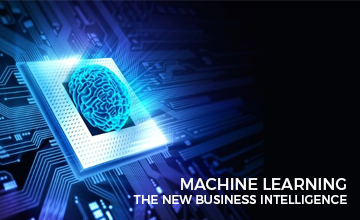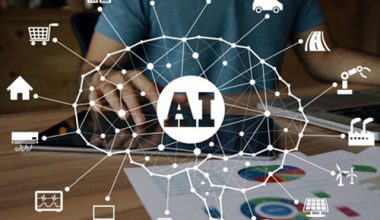
The evolution of artificial intelligence and machine learning is quickly taking over most services in the modern-day world. Automated methods that can produce precision-based directions with effectiveness, were developed to take over some of the most common activities. In one of the fields, advanced technologies have made an impact on supply chain and Logistics.
What is Artificial Intelligence?
In simple words, Artificial Intelligence is the ability of a computer to perform smart decisions similar to what human intelligence performs based on the received set of data. So that devices applied to artificial intelligence can read, study, and responds based on the collected data. It can learn on its own with the help of machine learning patterns by looking after the previous data.
Most of the leading enterprises are adopting artificial intelligence and machine learning to turn core strategies into real-time decisions related to issues like cost, inventory and carriers and vehicle transportation and vehicle, etc.
While these innovative technologies produce data, the transport industry has been producing data that is used to deliver useful insights.
The modern methods of operating in logistics and transportation have formed in recent years. The abilities of Artificial Intelligence can develop companies by delivering useful insights and allowing companies to be more proactive.
By understanding what to suppose, they can reduce the number of total vehicles required for transport and guide them to the places where the demand is required, which leads to significantly reducing operational expenses.
The AI can collect the data from various resources to avoid risks and helps to develop solutions. This enables the logistics and supply chain to make changes based on data delivered and used for maximum benefit for companies.
Artificial Intelligence inventory control
Efficient control of inventory is predominant to customer satisfaction and competition for advantage. Artificial Intelligence can use the access data, such as real-time stock and inventory levels, as well as the load size of vehicles to perform the delivery, in line to become to a reasonable value and secure both contrive are satisfied.
Artificial intelligence can also control and observe supplier record levels, and vehicle availability ahead of time, so that consumers are notified of the exact amount and expected at the time of performance for upcoming performances.
The logistics sector is complicated and multi-structured, demanding the capability to design, be flexible, and be adaptable. However, with the appropriate platform, automation of logistical work methods can efficiently develop the application of time and money when deciding the logistics of an enterprise, reducing costs and hazards, and enhancing profitability.
Predictive analysis
Predictive analysis is the method of executing predictions using data analytics based on data produced. This process builds a predictive pattern for a selective analysis. In this pattern, apart from analyzing data, statistics and machine learning methods are also applied to determine future results.
The evaluation of needs, even before the customer puts an order, provides the logistics crew with an increase in productivity and quality. Customers’ lack of tolerance for delayed shipments is one of the leading portions of changing logistics today. Consumers require their delivery at the exact time.
AI impacts supply chain management and logistics
Cost reduction and responsiveness
AI has the capability to collect the data from circumstances and provides insights to decide the key factors to reduce cost and enhance responsiveness. Applying AI and machine learning is a vital benefit for logistics in a variety of aspects.
AI technology adoption in logistics includes Intelligent Robotic Distributing an efficient, high-speed sorting of unregulated packages, reports, and palletized freight with the advice of Artificial Intelligence operated robots that decrease human effort and failure rates.
Also Read :
How Mobility Solutions are transforming the dynamics of supply chain industry and logistics industry
Supplier relationship control
Artificial Intelligence can develop supplier preference and improve the effectiveness of supplier relationship control. Supplier-related chances are a significant concern for logistics experts.
AI can investigate supplier-related data such as time in full control production, audits, evaluations, and balanced scoring and produce data to apply for ultimate decisions concerning certain suppliers. As a conclusion, a business can make reliable supplier decisions and enhance its customer service.
Customer Experience
It has the capacity to change associations between logistics providers and consumers by offering personalization them. It can track parcels and get shipment data using the voice assistant.
The customer can ask the question regarding their shipment details and time of arrival etc., as it acted as a customer assistant tool of the business.
AI is a well-formed structure system to recognize model and machine learning. The technology already performs a vital role in some of the high-level supply chain and logistics solutions, developing effectiveness, ability, and automating various responsibilities for supply chain supervisors and planners.
Customer Support
Personal assistants allow getting the basic data from the customer by answering their inquiries. As AI assistants become more complex, they can manage many customer-focused businesses at every level of the supply chain, including approach receipts, sales, executive duties, consumer service and more. The technology may ultimately implement a cost-effective method to combine with consumers while presenting customers with a strong and constant experience.
Supply chain planning
It is a crucial movement to have intelligent performance tools for developing detailed procedures in today’s marketing world. Machine learning in supply chain management helps to forecast inventory, demand, and supply.
The technology can transform the activity and optimization of supply chain conclusions to improve. This kind of ability could optimize the distribution of assets while considering supply and interest, and would not want human analysis, but rather performance setting of parameters of progress.
Conclusion
Artificial Intelligence continues the journey of developing digitalization and become bigger and essential part of daily business.
In industries like logistics, AI that receives from experience is a helpful method for determining significant problems. Artificial Intelligence is operating a significant role in stimulating the path towards a predictive, proactive and personalized prospect for logistics.
Fusion Informatics is one of the leading AI development companies in India provides best AI solutions for various industries including logistics. We hold 18+ years of experience in developing AI applications that help to improve your enterprise in the competitive world.
Reach us at [email protected] to know more about Artificial intelligence.






